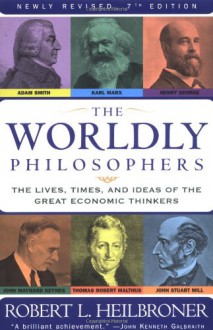
I'm not without bias, but I'd like to think I came at this book with an open mind. I have a deep respect for hard-won expertise. But, like most academics, I also have a deep respect for modesty and the careful application of knowledge. This book doesn't argue against that kind of expertise, it argues against the use of technocracy to overlook issues of rights and politics in development.
And in this respect, the book is actually a little late to the party, since these issues have been discussed and examined for more than two decades outside of the economics discipline in the field of human geography, sociology, and more particularly the subfield of political ecology. (You can also read a fantastic book in the area of humanitarian assistance called "Condemned to Repeat" by Fiona Terry.)
Largely, Easterly makes a great argument for "rights-based" development and bottom-up forms of development based on the economic theory of Friedrich Hayek. Some reviewers have argued against the structure of the book. But I actually found its approach refreshing. I found the early use of the "debate that never happened" to be excellent. I like when authors interrogate the historical genesis of ideas. It highlights that ideas are never innocent -- they are always for something (and usually for someone).
As for the case study and long history approach -- fantastic! (Even though it summarizes the scholarship of mostly other authors).
It's bizarre that in a book about the "tyranny of experts" there would be little mention of James Ferguson's "The Anti-Politics Machine" or Arturo Escobar's "Encountering Development". Michel Foucault's concept of power/knowledge would have also been a helpful addition (though it would have turned off some potential mainstream readers). Ferguson gets one paragraph. Escobar is nowhere to be found.
The book is well-written, largely divorced from partisan ideology, and well-researched. It is grounded in the academic ethos of the honest search for truth. One of my concerns is the way this book might be used. Just as the book demonstrates how the knowledge products of experts are utilized for very narrow political interests, I have a feeling this book will (and probably already has) been utilized for various political interests it was never intended to serve.
I could, for example, see the author's ideas being used to argue for drastically cutting development aid. (I haven't looked into this, but such is the problem with mainstream economists).
Additional Notes:
Page 96 has the best quote of the book: "The findings on autocracy having a lasting effect suggest one simple lesson: get out of the vicious circle of autocracy and bad values as soon as you can! The sooner you begin the virtuous circle of democracy and good values, and the sooner you get through the rocky transition, the better".
Mirroring an idea from Nassim Nicholas Taleb, Easterly writes that technocratic actors are worse than market or government actors because unlike these two actors, they aren't held responsible for their actions by either market or the democratic public. (In other words, no skin in the game.)
An idea I found useful "the new growth model" - the number of new ideas increases with the number of people on earth (as well as the number of existing inventions plus the proliferation of rights). Thus innovations can be seen as the simple formula: population + rights + already existing innovation = new innovation.
This then explains the extraordinary factor growth in innovation. This was an idea that was new to me.
Thank you very much, Mr. Easterly, for a fantastic read.

 Log in with Facebook
Log in with Facebook 






